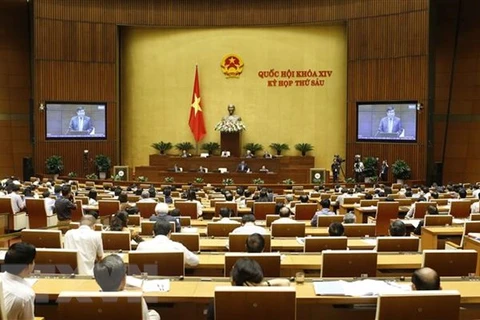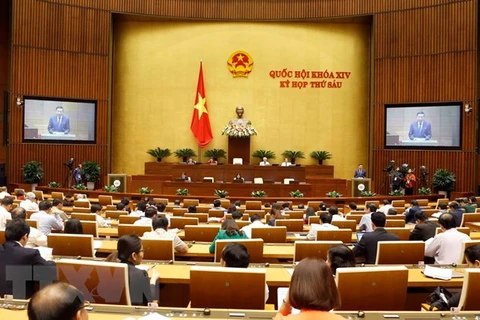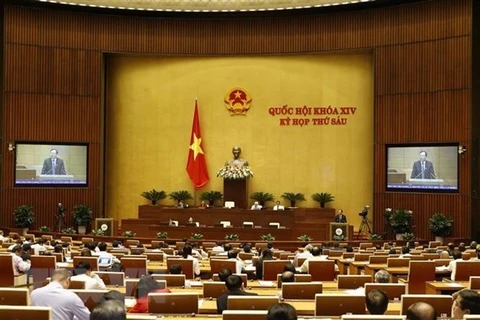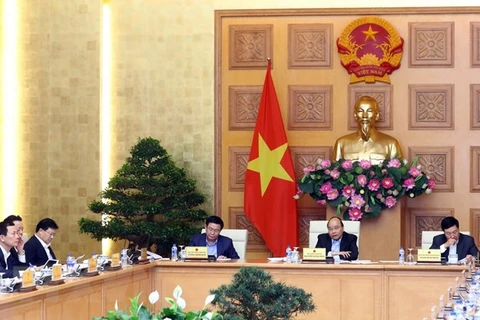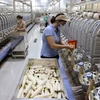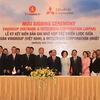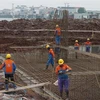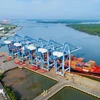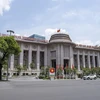 National Assembly deputies press button to approve resolution on State budget estimates for 2019 at the 14th NA's sixth session (Source: VNA)
National Assembly deputies press button to approve resolution on State budget estimates for 2019 at the 14th NA's sixth session (Source: VNA) Hanoi (VNA) – The National Assembly has issued a resolution on State budget estimates for 2019, in which total State budget collection will likely reach over 1.411 quadrillion VND (60.67 billion USD), while the total spending will hit more than 1.633 quadrillion VND.
Budget overspending is estimated to reach 222 trillion VND, or 3.6 percent of the gross domestic product (GDP), in which central budget overspending will be 209.5 trillion VND and local budget overspending 12.5 trillion VND. The total state loans will top 425.2 trillion VND.
The legislature agreed to use 10.38 trillion VND left from the central budget in 2017 to offset lower State and local budget collections and assist localities lacking funds to pay salaries.
As much as 138.5 billion VND funded by the World Bank will be used for banking management and the modernisation project during the 2016-2020 period, while more than 79.8 billion VND in non-refundable official development assistance sourced from the Republic of Ireland’s Government will be allocated to a project on supporting particularly disadvantaged communes.
Upwards of 8.2 billion VND will be provided for the northern province of Cao Bang and over 14.8 billion VND for Bac Kan province to support farming households.
Up to 70 billion VND in non-refundable aid from the Belgian Government will be used for a project on water resource management and urban development amidst the impacts of climate change in the central province of Binh Thuan.
The legislative body urged the Government to closely direct fiscal policy and combine it with monetary policies to develop production, stabilise the macro-economy, curb inflation, and promote economic growth.
The Cabinet was also required to intensify inspections to ensure the transparent use of State budget, as well as the prevention of trade frauds, tax loss, and transfer pricing.–VNA
VNA
